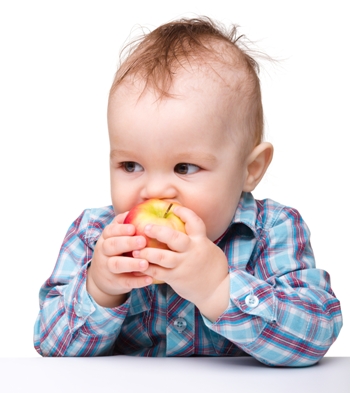 What ALL family members know, think and do about the health of babies has a big impact – no parent operates alone… a baby’s health is family business.
What ALL family members know, think and do about the health of babies has a big impact – no parent operates alone… a baby’s health is family business.
This article is about who does what in the first months of your baby’s life – not just what mum does.Mums, dads, family, friends and health professionals all play a part. We are all connected.
3 of the big baby health issues for families are: breastfeeding, bonding and mental health.
- Breastfeeding: If breastfeeding works, babies need nothing else for the first 4 to 6 months, then it can be combined with other foods. It can be tricky. Success is a family business and dads have a particularly big influence. They, along with grandparents, family and friends can help with practical things like privacy and housework, but most importantly, they need to know about the difficulties breastfeeding mums might face, so that mum is never alone. Fathers, family and friends look after breastfeeding babies too – there’s lots to do – burping, changing nappies, bathing, carrying, bedtime and gazing into their eyes (which helps their brain develop). Sometimes mum can express milk, so dad and others can feed breast milk via a bottle, and mum can get a break.
- Bonding: Bonding well with the adults who love and care for them is crucial for babies to grow and learn well. It starts with mums, whose nurturing hormones are released during pregnancy, birth and after. Men’s hormones change too; the more time men spend with pregnant women and babies – in fact, babies trigger hormone changes in every adult that is close to them. We’re hard wired this way because babies are hard work and need long term care by whole families, not just mothers. This is how it has been for 200,000 years: mums face huge challenges if they’re on their own. Just as parents can love more than one child, so babies can love more than one adult. Babies close to two or three adults tend to do better than those only close to one adult. Sometimes mums and dads can fall in love with their baby straight away – for others it takes longer – either is normal. The key to becoming good at looking after your baby and getting close to them is simply spending time caring, feeding, washing, changing and playing – and supporting other family members as they do the same.
- Mental health: Mums are vulnerable to depression after a baby is born… and so are dads. About one in six new mums and one in ten new dads get depressed. Being depressed is horrible and if one parent suffers, it’s incredibly hard on the other too, and in some families both parents become depressed. A lack of support from your family or not getting on well with your partner can put you at risk. There’s good information on mums’ depression and how families can help at www.apni.org. A depressed dad might look a bit different; for example, they might stay away from home or bury themselves in distractions like work, alcohol and computer games. Couples have to look out for depression in each other and talk about it and the best help for depression is with family and friends. It’s also worth talking to a GP or Health Visitor. If everyone is part of the solution, the baby will be fine and recovery is likely to be quicker.








